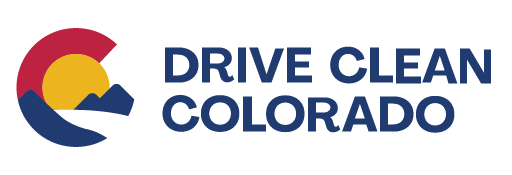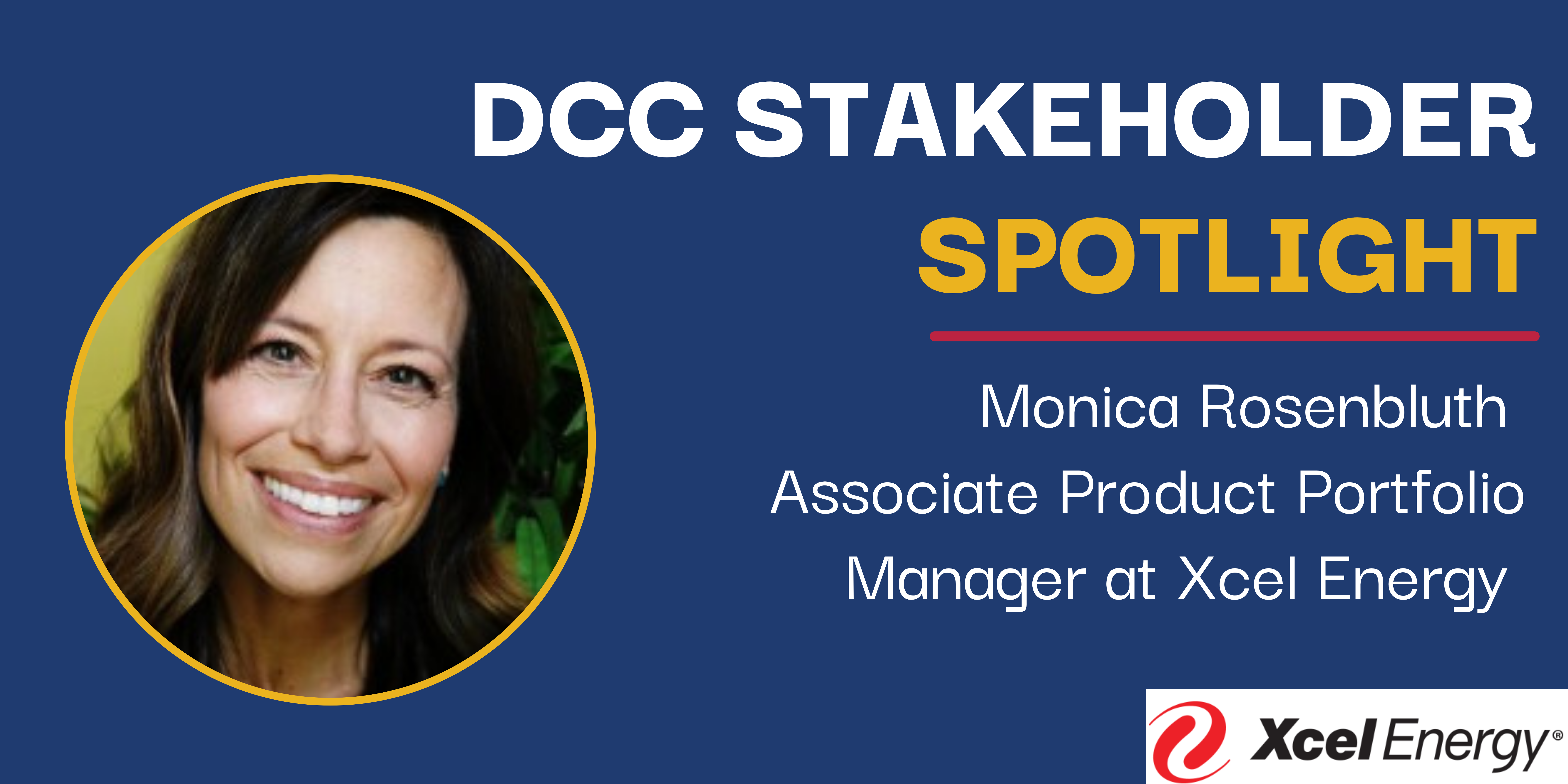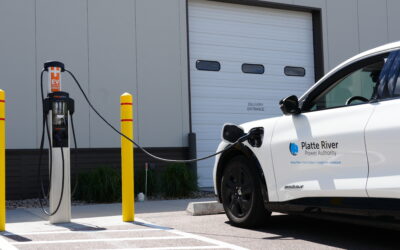Drive Clean Colorado is excited to highlight our Sustaining Partner – Xcel Energy (Xcel). Xcel Energy is a major utility in Colorado, working to accelerate the adoption of electric vehicles through its Transportation Electrification Program. DCC recently interviewed Monica Rosenbluth, an Associate Product Portfolio Manager with Xcel. Keep reading to learn more about Monica and Xcel’s work to advance clean transportation in Colorado.

*Note: The following answers are summarized from an interview with Monica Rosenbluth from Xcel
Could you give us a little introduction about yourself?
I grew up in Denver during the late 1970s and early 1980s. Back then, Denver was the world’s particulate matter (PM) capital. Air quality issues have always been around me. I attended the University of Colorado Boulder for my undergraduate degree, then went on to achieve a law degree from the University of Wyoming. After a career in public finance, I was ready to shift to renewable energy, particularly electric transportation. So, I went back to school to earn an MBA and recently began working for Xcel Energy. I am an Associate Product Portfolio Manager at Xcel, working on Xcel’s electric vehicle programs.
How does your work at Xcel help advance clean transportation in Colorado?
Xcel recently created its own Transportation Electrification Program (TEP), which is a document that outlines how we expect to electrify the transportation world in the next several years. The TEP was approved by the Public Utilities Commission (PUC) in March. The TEP is a living document because we can go back to the PUC and amend it. The TEP outlines our programs to increase the number of electric vehicles on the road. Xcel accomplishes this in several ways. One way is we offer direct rebates on electric cars for our income-qualified customers. A customer is qualified if they make 80% of the area median income or less, which in some of Colorado’s metropolitan areas is actually a surprisingly high level of income. Income-qualified customers can qualify for a rebate of $5,500 back on a new electric vehicle or $3,000 back on a pre-owned vehicle. The pre-owned rebate is unique as there are few subsidies on used EVs.
We also offer home wiring rebates. There are two levels to that rebate. The standard home wiring rebate for non-income qualified customers is $500. The enhanced rebate for income-qualified customers is $1,300. The purpose of the home wiring rebate is to encourage people to charge at home. We understand that upgrades are likely needed to wire your garage with a 240-volt plug to accommodate a level-two charger. The wiring rebate is designed to offset that cost. If you are income-qualified, you can actually use the remaining balance of the $1,300 to pay for a charger.
I just bought an electric vehicle, and it’s been fun to experience our programs through the lens of an EV owner. This has allowed me to learn the process and challenges of becoming a new EV owner, such as wiring my garage to accompany a level-two charger. I just submitted my application for home wiring repairs.
Could you explain your rebate programs for EV consumers and Xcel’s work in high emission areas?
Xcel wrote its TEP with an equity focus. We are trying to make electric vehicles and the whole charging component of being an EV owner more accessible. One of our goals is to demonstrate that EVs can be an affordable option, particularly used EVs. We want to push back on the narrative that EVs are just a luxury item and are now a real, viable option. Part of our work is to provide education and outreach to break down the perceived barriers to electric vehicle ownership. The customers we are trying to reach with our equity-based programs live in high-emission communities. Reducing the number of gas-powered vehicles on the road can improve air quality in those neighborhoods. Better air quality translates to better respiratory health for you, your kids, family, etc.
What is the eligibility process for the income-qualified rebates?
The eligibility process is twofold. Somebody submits an application to me, and I do a preliminary check to make sure the entire form is filled out and that the applicant is an Xcel customer. I then send the application to our third-party income verification partner, Grid Alternatives. Grid Alternatives works with the applicants to confirm their income or see if they are enrolled in a state or federal assistance program, which would automatically qualify them for the rebate. If qualified, Xcel can then award the applicant the rebate.
See more DCC Stakeholder Spotlights or learn more about joining DCC today!







